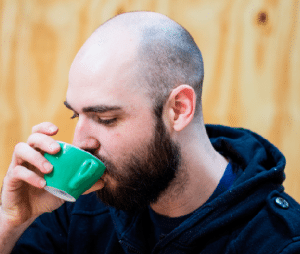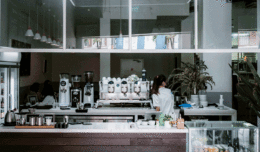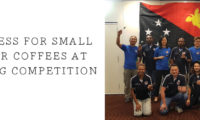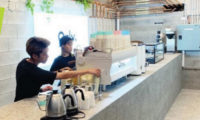Sustainability and Longevity
A couple of years ago I wrote an article (Café Culture Magazine issue 25) about an experiment I did. I took over a coffee shop to see if I could improve sales with what I thought were the key principles in a successful coffee business. In the three months that I had the space, I tripled the volume and created a small but loyal following.
In that, yes, you could call it a success but since most businesses want to last longer than three months, I thought about another aspect and probably the most important … being the sustainability and longevity of a coffee business.
Since then I have spent another 12 months working, travelling, making, teaching and consulting coffee, until I had enough confidence to reopen a shop. A good location came up in October 2012, and so I was off and trading.
It’s now been another 12 months, and I thought it would be a good time to share what I’ve learnt.
Do your Homework
In the previous article I mentioned that about 80% of businesses fail within the first 12 to 18 months of trading for of 3 reasons:
1. Poor or no business plan
2. Not enough experience in the industry
3. Not enough capital
The first two are a given, so I won’t go too much into it. What I will say is that if you don’t know what a business plan is or haven’t been in the industry for at least 5 years, then you shouldn’t even be considering setting up your own business. The number of café owners I have consulted to that have either no idea about coffee or have barely been in the industry is astounding. If you think you can hire a hot-shot barista to do the coffee for you, fine. However, good luck when the barista decides to leave. This is your business and it’s up to you to dictate the standard of quality and service to the customers.
Make sure you have enough capital. My shop almost didn’t happen, because I under capitalised. Once I had set up in the shop to start making coffee, I had $200 left in the bank and still had a lot of things yet to acquire.
As a rule I would say add 30% to whatever you estimate as your start up costs, to account for any unforseen expenses. Trust me; they will happen.
Do the Time
The first eight weeks of trade I averaged around 100 hours a week with no staff. In the first five months I had already put 2,000 hours into the business. Now after 12 months, it’s almost close to 4,000 hours, with only 7 days off, all of which were public holidays and the shop was closed.
It’s important to work smart, but it doesn’t work if you don’t put the hours into it. You pay rent for 24 hours a day, so why not utilise it.
You can’t make a sale if the doors aren’t open. Even if you only serve two people in the last hour doesn’t mean you should close an hour earlier. Those two could end up being regulars and tell all their friends.
You can always reduce your trading hours at a later date; however, you’ve only got one shot at a start up, so make the most of it.
Point of Difference
The coffee industry has a nasty habit of new business owners copying other successful businesses. The reason these businesses are successful is because they have either improved on the current industry trends or offered something the industry hasn’t.
Having a point of difference will help set your business apart from the hundreds of shops out there. Restaurants and bars have been doing it for decades, so why not the coffee industry?
It doesn’t have to be drastic, but definitely something subtle and unique that is currently not being offered will help to differentiate your business from the crowd.
Know your Craft/Stand Behind your Product
I had a lot of response from customers about how they enjoyed coming to a coffee shop where the person behind the machine treated the coffee with respect. Knowing how much care and attention I was putting into their cup added far more value and more reason to come here than other places.



















